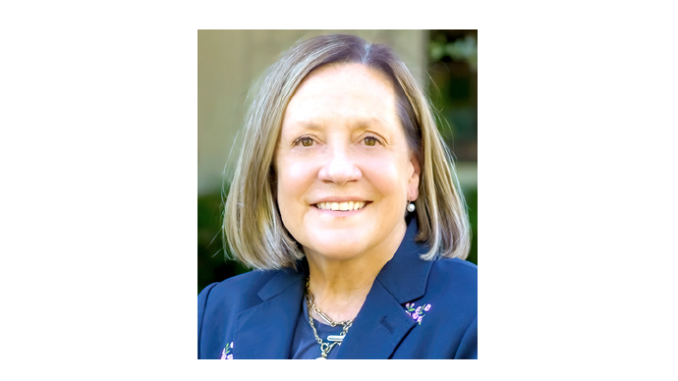
BY BRADEN CARTWRIGHT
Daily Post Staff Writer
Palo Alto City Council candidate Doria Summa doesn’t want to see a tall apartment building at the downtown train station. Council should use its zoning restrictions to get Stanford to build an 100% affordable housing project there, and it doesn’t need to go above the city’s 50-foot height limit, she said.
“Stanford owns the property, but Palo Alto controls it through zoning,” she said in an interview with the Post.
The property is zoned for “public facility,” meaning the city isn’t obligated to approve anything other than a public facility there. Stanford proposed a mix of market-rate and affordable apartments, but Summa wants to see all of the latter.
“Affordability is the crisis in California,” she said.
Stanford and the city talked about putting a seven-story building with 270 units at the train station. That was a step down from Stanford’s high-end proposal for a 137-foot building with around 500 units.
If the apartments are small, then a developer can build 50 units on a half-acre site, Summa said. The train station property is over six acres, so the apartments could be spread out, not built up, to get the number of homes that Stanford has proposed, she said.
That would help protect the MacArthur Park restaurant and the train station building, which are both historic assets, Summa said.
Summa’s views on the downtown train station are different from most of the other candidates and current council members. That’s not a surprise, as she cast the lone “no” vote on multiple occasions in her six years on the Planning and Transportation Commission.
“I’m willing to stick my neck out a little more than some,” she said.
Summa said she would work on getting undedicated parks to be dedicated as parkland, that way voters would have to approve any other use.
For example, Summa said the Winter Lodge ice skating rink, the private gardens at Rincanoda Park and the water tower at the north end of Alma Street should be dedicated as parkland.
“I don’t want to see those slip away and become developed as housing,” she said.
Summa also said there should be transitions in heights between residential neighborhoods and taller buildings in developing areas. She supports a 35-foot height limit within 150 feet of residential neighborhoods, even for neighborhoods that are zoned for dense housing.
Summa has been a part of Palo Alto Neighborhoods and is endorsed by Palo Altans for Sensible Zoning, two groups that generally oppose development. Instead, she wants to focus on preserving existing affordable housing and approving protections for renters.
She also wants to keep “background open space” for birds, bees and butterflies.
Summa said the property at 250 Sherman Ave., which is zoned for “public facility” like the train station, also should’ve been used for affordable housing, not a new police station.
Summa was against the Castilleja School’s project to grow its enrollment, rebuild its campus and put in an underground garage at the corner of Bryant Street and Embarcadero Road.
Her critics said she was against women’s education, but she said her vote was about the large number of exceptions the city was giving the school.
Underground garages become underground dams, and the city should a policy restricting them, Summa said.

You can’t get anything done through local government if all you ever do is say no to everything before you. That’s basically her M.O.